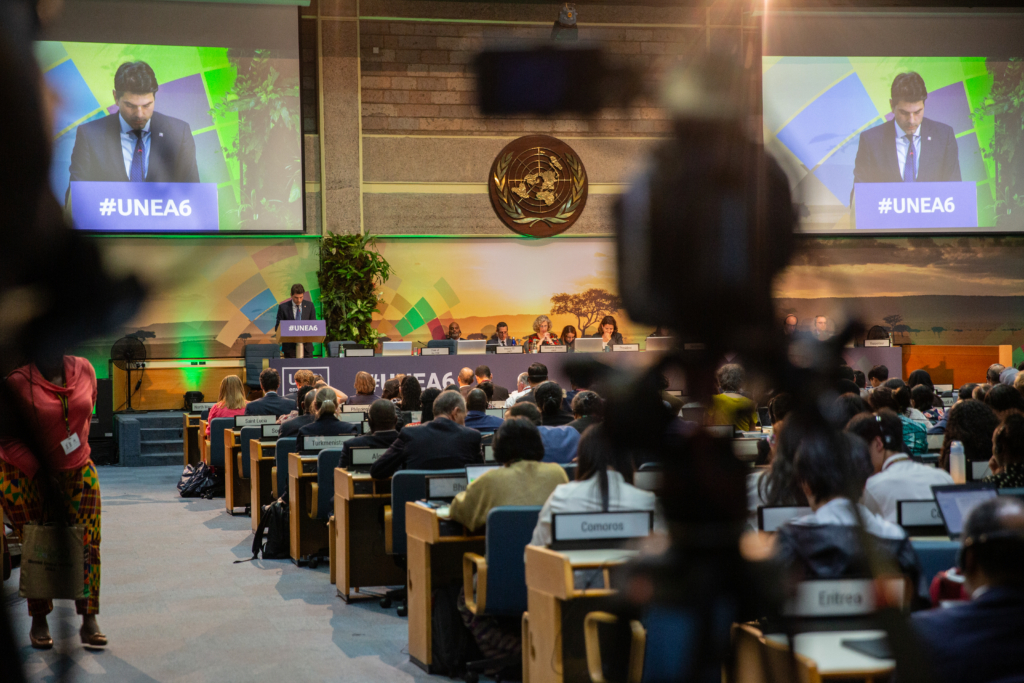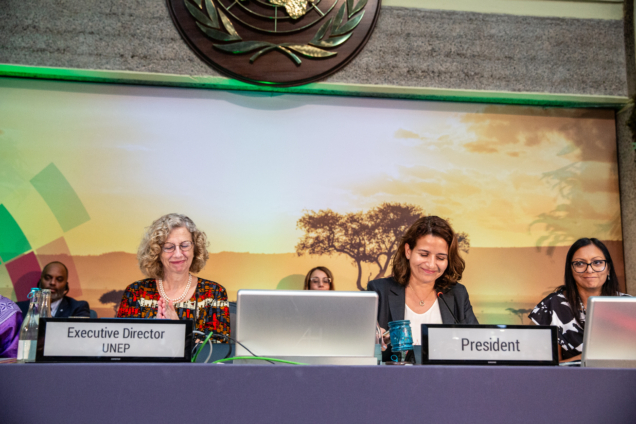Fifteen resolutions, two decisions and a ministerial declaration were agreed at the just ended 6th Session of the UN Environment Assembly (UNEA-6) in Nairobi, Kenya which lasted over the last 10 days.
The water resolution advocates for an integrated strategy in managing water resources for agricultural and industrial purposes, emphasising the need to bolster implementation efforts, particularly in developing countries.
The resolution on air pollution aims to strengthen national air quality monitoring, capacity building, and coordination in developing and implementing action plans and policies to improve air quality.
The resolution on land degradation urges member states to advance land conservation and sustainable land management practices, striving towards achieving land degradation neutrality and bolstering resilience to drought.
The resolution on ocean and seas governance emphasises the critical need to reinforce the interface between ocean science and policy, as well as to sustain cooperation and coordination on marine matters among all stakeholders to effectively fulfill Sustainable Development Goal 14.
The resolution on governance aims to foster synergies in the implementation of Multilateral Environmental Agreements (MEAs) by enhancing capacity-building efforts, strengthening cooperation with UN Country Teams, facilitating reporting processes, and mobilizing resources.
The Ministerial Declaration underscores the pressing nature of the environmental crisis and acknowledges the varied impact and threats posed by multiple environmental challenges. It recognises the significance of past declarations, Conference of the Parties (COPs), and Multilateral Environmental Agreements (MEAs), endorsing their agreed principles and outcomes in their entirety. Additionally, it outlines 10 specific actions that environment ministers commit to implementing.
During the opening ceremony, UNEA-6 President, H.E. Leila Benali, urged world leaders and others to adopt solutions with an open, inclusive, and inquisitive mindset. She emphasised the importance of a holistic approach involving all sectors of society, prioritising vulnerable communities, and ensuring that no one is left behind in environmental efforts.

“As governments, we need to relearn to work together better and use our regional and multilateral platforms, including the various MEAs, to their potential,” she stated, encouraging them to advocate for renewed and innovative partnerships with key stakeholders to fulfill these mandates.
We need to continue to partner with civil society, continue to guide and empower our creative youth, and also with the private sector and philanthropies,” she added.
He remarked that with the resolutions agreed upon, it is time to pass the torch, inviting Chairman of the Environment Authority of Oman Abdullah Bin Ali Amri as the next UNEA President to assume a significant role moving forward.
Executive Director of UNEP Inger Andersen affirmed that UNEP will uphold the responsibilities outlined in these new resolutions while also continuing to monitor and assess environmental matters.
“Much work lies ahead. So, I ask everyone to do what they can in their own sphere of influence. To engage fully in the important processes that lie ahead, such as the three Rio Convention COPs (Conference of the Parties) this year, the negotiations on an instrument to end plastic pollution and, of course, the Summit of the Future.
"Since our next UNEA will happen at the end of 2025, I ask you to engage deeply and meaningfully in the Basel, Rotterdam and Stockholm COPs in April 2025. In the Minamata Convention COP in November 2025. And in the Convention on International Trade in Endangered Species of Wild Fauna and Flora (CITES) COP at end of 2025,”she said.
The Executive Director emphasised that urgent action, swift implementation, and tangible, enduring transformations are imperative. UNEA-6 has provided an additional impetus to facilitate such changes and to guarantee that every individual on Earth is afforded the privilege of a secure and sustainable environment.
Latest Stories
-
ICU Ghana elects new youth leaders at 6th National Quadrennial Delegates’ Conference
9 minutes -
Ghana to participate in maiden ANOCA School Games in Algeria
19 minutes -
Ghana, Serbia to sign labour mobility agreement as bilateral ties deepen
21 minutes -
Armwrestling: Glico insures Golden Arms, NHIA, NPA, others support for Africa Championship
25 minutes -
The dollar is not a legal tender in Ghana, you can reject it as medium of payment – BoG Governor
39 minutes -
Ghanaians will vote NDC out if Mahama fails ‘galamsey’ fight – Tony Aidoo
56 minutes -
WAFCON 2024: ‘We believed in ourselves’ – Chantelle on Black Queens’ big win over Tanzania
58 minutes -
WAFCON 2024: ‘Proud to wear the Ghana badge’ at competition – Chantelle Boye-Hlorkah
1 hour -
Respect Ghana laws and desist from divisive conduct – Okudzeto warns Igbo leader
1 hour -
Chief of Staff confirms participation in 2025 JoySports Invitational
1 hour -
Defence Minister rewards soldier who rejected ‘galamsey bribe’
1 hour -
A year on, CAF yet to pay Kobby Spiky in his fight for Creative Justice
2 hours -
VAST-Ghana backs NYA CEO’s call for shisha and e-cigarettes ban
2 hours -
Tano North NDC Executive Committee Disowns members
2 hours -
Cal Asset Management delivers 32.43% return in 2024, boosting investor confidence
2 hours

